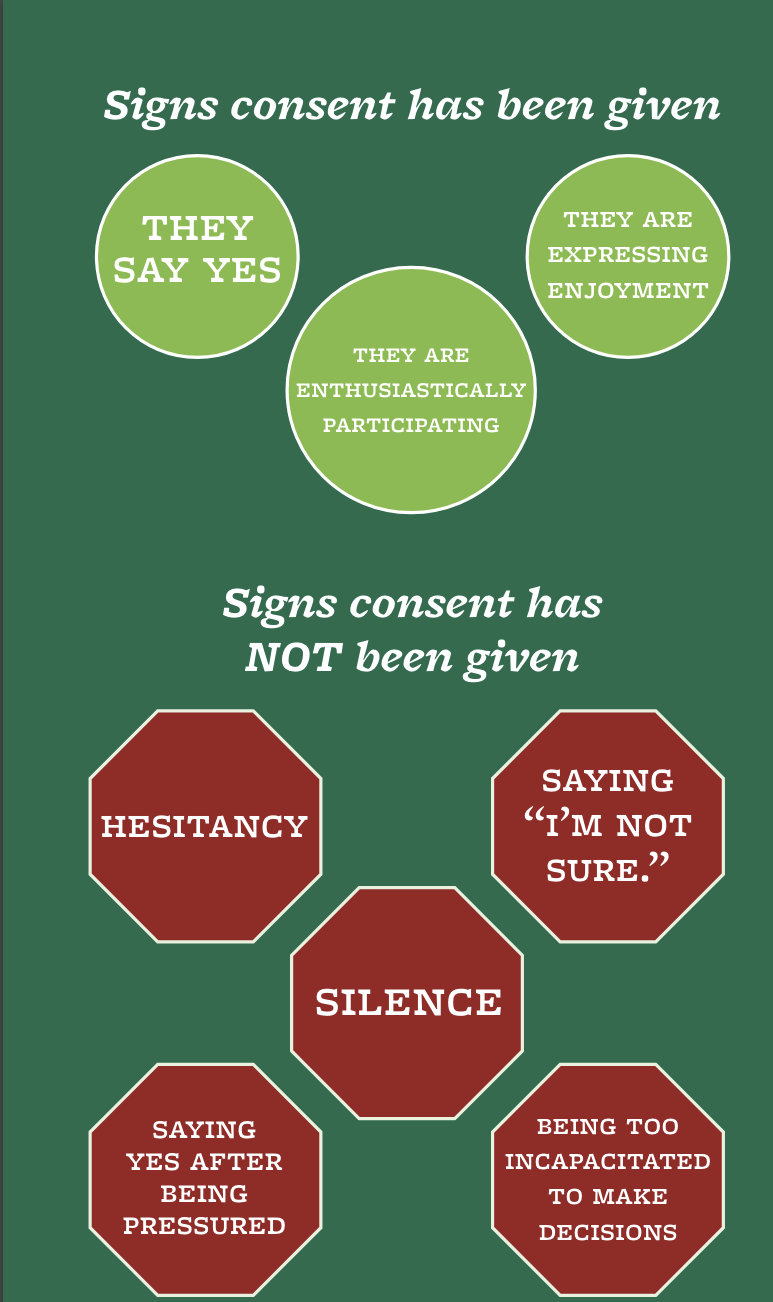
Waiting for a “no” from a sexual partner and not hearing it does not mean that person has consented. It’s more about ensuring your partner has said “yes” either verbally or nonverbally and that it is a clear and freely given “yes”!
Sexual activity when combined with alcohol can blur understanding of consent. 90% of campus sexual assaults involve use of alcohol by the perpetrator, victim, or both. Caution your student about engaging in any sexual activity when they or their potential partner are under the influence of alcohol, especially if it is a new relationship or partner.
Encourage them to safely intervene in situations where there may be risk of alcohol facilitated sexual assault as a way to combat a misguided cultural norm that drunk sex is a part of the college experience.
Normalizing sexual communication and encouraging your student to be assertive in their communication as a sexual being is important for safety and pleasure. Helping them feel confident and comfortable expressing sexual communication is a conversation that can’t be started too early. If your student is not sexually active, talking about this will not push them to become sexually active but it will help prepare them for when they decide it is the right time to become sexually active.